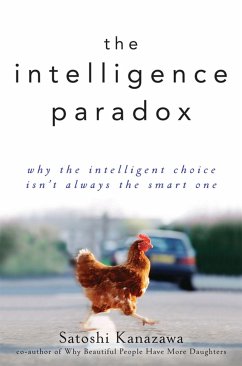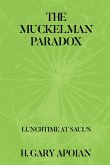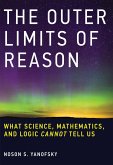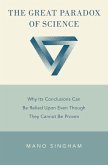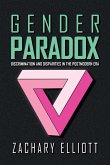A book that challenges common misconceptions about the nature of intelligence Satoshi Kanazawa's Why Beautiful People Have More Daughters (written with Alan S. Miller) was hailed by the Los Angeles Times as "a rollicking bit of pop science that turns the lens of evolutionary psychology on issues of the day.
Advance praise for The Intelligence Paradox "The Intelligence Paradox is a chocolate sundae for the brain, filled with insights about intelligence and everyday behavior that have changed my thinking about intelligence. A brilliant achievement and a joy to read."--Charles Murray, author of the New York Times bestseller Coming Apart "This is a splendidly written book about a fascinating new theory of intelligence. By carefully anchoring his approach in evidence, Kanazawa integrates information about the evolution of intelligence in intriguing and tantalizing ways. He also generates some startling and provocative predictions. Be forewarned, this book will change the way you think about intelligence." --Gordon Gallup, evolutionary psychologist, University at Albany, SUNY "This is a beautifully written book that will sell to laymen as well as to academics. Kanazawa's thesis is that intelligence, what IQ tests measure, is a specific ability to cope with general problems for which our evolution has not prepared us. Intelligence then leads to great benefit when tethered to the real world, such as quantum theory and computers. Untethered, it can lead to convoluted nonsense such as fads in literary criticism. And while intelligence may often be considered an unalloyed good, Kanazawa shows it has costs to biological fitness. For example, intelligent people have fewer offspring, although successful reproduction is the definition of evolutionary success. Intelligent people are more prone to indulge in (evolutionary) novelties such as drugs. Viewed from the perspective of evolution, intelligent people are 'the ultimate losers in life.'"--Henry Harpending, coauthor of The 10,000 Year Explosion: How Civilization Accelerated Human Evolution "General intelligence is both a grand achievement of psychology research and a crucial human dimension. That people differ so markedly from each other on such an important trait has seemed something of an evolutionary paradox. Wouldn't evolution make us all smart? Satoshi Kanazawa proposes an intriguing explanation about how human intelligence evolved and why differences remain among us. It is a creative but data-driven argument that I found surprising but sensible. I think he may be right. And it's delivered in a breezily elegant style that is a joy to read."--J. Michael Bailey, author of The Man Who Would Be Queen
Hinweis: Dieser Artikel kann nur an eine deutsche Lieferadresse ausgeliefert werden.
Advance praise for The Intelligence Paradox "The Intelligence Paradox is a chocolate sundae for the brain, filled with insights about intelligence and everyday behavior that have changed my thinking about intelligence. A brilliant achievement and a joy to read."--Charles Murray, author of the New York Times bestseller Coming Apart "This is a splendidly written book about a fascinating new theory of intelligence. By carefully anchoring his approach in evidence, Kanazawa integrates information about the evolution of intelligence in intriguing and tantalizing ways. He also generates some startling and provocative predictions. Be forewarned, this book will change the way you think about intelligence." --Gordon Gallup, evolutionary psychologist, University at Albany, SUNY "This is a beautifully written book that will sell to laymen as well as to academics. Kanazawa's thesis is that intelligence, what IQ tests measure, is a specific ability to cope with general problems for which our evolution has not prepared us. Intelligence then leads to great benefit when tethered to the real world, such as quantum theory and computers. Untethered, it can lead to convoluted nonsense such as fads in literary criticism. And while intelligence may often be considered an unalloyed good, Kanazawa shows it has costs to biological fitness. For example, intelligent people have fewer offspring, although successful reproduction is the definition of evolutionary success. Intelligent people are more prone to indulge in (evolutionary) novelties such as drugs. Viewed from the perspective of evolution, intelligent people are 'the ultimate losers in life.'"--Henry Harpending, coauthor of The 10,000 Year Explosion: How Civilization Accelerated Human Evolution "General intelligence is both a grand achievement of psychology research and a crucial human dimension. That people differ so markedly from each other on such an important trait has seemed something of an evolutionary paradox. Wouldn't evolution make us all smart? Satoshi Kanazawa proposes an intriguing explanation about how human intelligence evolved and why differences remain among us. It is a creative but data-driven argument that I found surprising but sensible. I think he may be right. And it's delivered in a breezily elegant style that is a joy to read."--J. Michael Bailey, author of The Man Who Would Be Queen
Hinweis: Dieser Artikel kann nur an eine deutsche Lieferadresse ausgeliefert werden.

